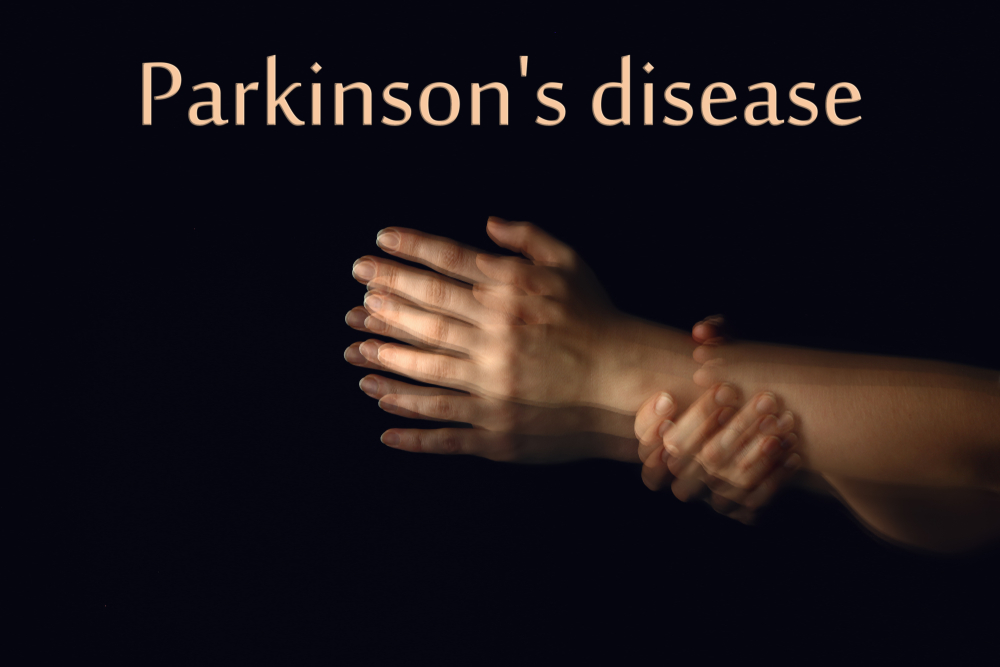How To Live with Parkinson's Disease?

Parkinsons disease affects the brain's capability to regulate movement, characterised by its chronic and deteriorating nature. Despite posing various challenges such as tremors, stiffness, slowness of activities, and coordination issues, individuals living with Parkinson's can still lead fulfilling lives with appropriate management approaches and support. In this article, we shall delve into managing Parkinsons disease, including symptom management and life expectancy.
Understanding Parkinson’s Disease
The demise of neurons that produce dopamine in the brain is the catalyst for Parkinson's disease. As a neurotransmitter, dopamine facilitates communication among neurons and is imperative in governing movement. A deficiency in dopamine results when dopamine-generating neuronal cell death, bringing on the signs of Parkinson syndrome.
Older individuals aged 60 and above and men are more prone to Parkinson syndrome incidence than women. Likewise, exposure to particular substances like pesticides and a familial history of the ailment may heighten the risk of developing Parkinson syndrome.
Parkinson's disease develops in phases where each stage leads to differing symptoms. The initial phase is typically mild and characterised by light tremors and subtle changes in stance and walking style. The second phase falls under moderate levels, with more apparent trembling, stiffness, and hindered balance and coordination. The third and final stage is severe, where affected individuals struggle significantly with their mobility and movement.
Living with Parkinson's Disease
While Parkinson's disease is a progressive condition, there are many management strategies that can help improve symptoms and maintain a good quality of life.
Medication and Treatment
Medication is the primary treatment for Parkinson's disease, and there are many different types available. These medications work by either increasing dopamine levels in the brain or mimicking the effects of dopamine. It is essential to work closely with a healthcare provider to find the right medication and dosage to manage symptoms effectively.
In addition to medication, there are also several non-medical treatments that can help manage Parkinson's disease symptoms. Physical therapy and exercise are important components of Parkinson's disease management, as they can improve balance, coordination, and mobility. Speech therapy can help with communication difficulties, and occupational therapy can help with activities of daily living.
Surgical Treatment
Deep brain stimulation
Which is similar to pacemaker insertion in heart
Usually considered in patient’s developing medication side effects.
Safe and effective procedures
Healthy Lifestyle
Maintaining a healthy lifestyle is essential for managing Parkinson's disease. Eating a healthy, balanced diet can greatly help. It is also important to get enough sleep each night to help manage fatigue and other symptoms.
Exercise and physical activity are crucial for managing Parkinson's disease symptoms. Regular exercise can improve muscle strength, flexibility, and balance, and may even slow the progression of the disease.
Emotional and Psychological Support
Living with Parkinson's disease can be emotionally and psychologically challenging. Depression and anxiety are common in people with Parkinson's disease, and it is essential to seek support from family, friends, and healthcare professionals.
Coping Strategies for Parkinson's Disease
In addition to medical treatment and lifestyle changes, there are many coping strategies that can help people with Parkinson's disease manage their symptoms and maintain their independence.
Building a Support System - Building a support system is essential for managing Parkinson's disease. This can include family, friends, and healthcare professionals, as well as support groups and online communities. It is important to have people to talk to and rely on for help when needed.
Adapting to Changes in Daily Routines and Activities - As Parkinson's disease progresses, it can become challenging to perform daily routines and activities. Making adaptations to the home, such as installing handrails or using a shower chair, can make a significant difference in maintaining independence. Occupational therapy can also help with adapting to changes in daily activities.
Managing Mobility and Independence - Maintaining mobility and independence is essential for a good quality of life. Assistive devices can help with mobility challenges. It is important to work with a healthcare provider or physical therapist to determine which assistive devices are appropriate and to learn how to use them safely.
Finding Joy and Purpose in Life - Despite the challenges of Parkinson's disease, it is possible to find joy and purpose in life. Pursuing hobbies and interests, spending time with loved ones, and volunteering can all provide a sense of purpose and fulfilment.
Parkinson's Disease Life Expectancy
Parkinson's disease is a chronic condition, but life expectancy can vary depending on several factors. Age is a significant factor, as Parkinson's disease is more common in older adults. Men also have a slightly shorter life expectancy than women with Parkinson's disease.
The stage of Parkinson's disease at diagnosis is another factor that can affect Parkinson's disease life expectancy. Early diagnosis and treatment can help slow the progression of the disease and improve Parkinson’s life expectancy. However, if Parkinson's disease is not diagnosed until later stages, Parkinson's life expectancy may be shorter.
End-of-Life Care
It is essential to plan for end-of-life care for people with Parkinson's disease. Palliative care can provide comfort and support during the final stages of the disease, and hospice care can provide end-of-life care and support for both the person with Parkinson's disease and their loved ones.
Conclusion
Living with Parkinson's disease is challenging, but with the right management strategies and support, it is possible to maintain a good quality of life. It is essential to work closely with healthcare providers to manage symptoms and adapt to changes in daily routines and activities. Building a support system and finding joy and purpose in life can also help with coping.
Parkinson's disease life expectancy can vary depending on several factors, but early diagnosis and treatment can improve parkinson’s life expectancy. Planning for end-of-life care is also important for people with Parkinson's disease and their loved ones.






